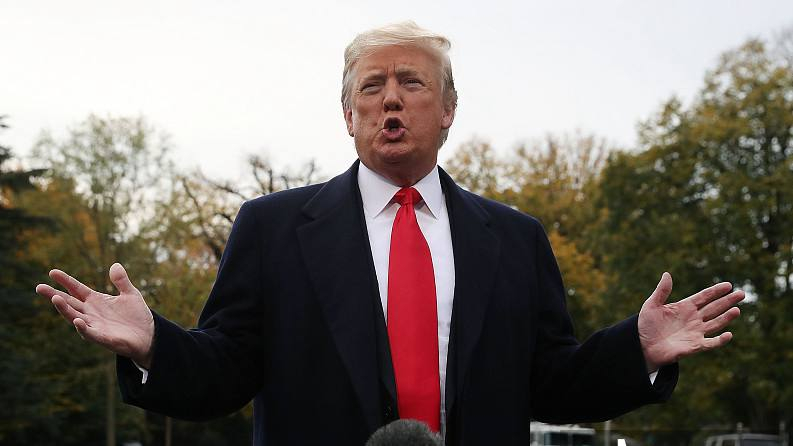
Economy
21:24, 24-Jan-2019
CEOs sour on Trump policies, warn they hurt investment
CGTN

From center stage in Davos last year, U.S. President Donald Trump told the world's corporate bosses that America is a great place to invest. It hasn't quite turned out that way.
Foreign direct investment (FDI) to the United States fell in 2018, and companies gathered at the World Economic Forum in the Swiss Alps this year say they are worried Trump's trade war with China will dampen the U.S. economy itself, global economy and business investments even further.
One key complaint here this week: Companies increasingly reliant on consumers in China have had to lower their earning's outlooks as the world's second-largest economy cools.
U.S. is losing foreign investment
While the U.S. administration has cut taxes and regulations to attract new investment, FDI to the U.S. in 2018 decreased.
Foreign investment in the United States, which includes cross-border mergers and acquisitions and intra-company loans, fell by about 18 percent in 2018 from the prior year, according to the United Nations Conference on Trade and Development (UNCTAD).
That is close to the 19-percent year-on-year drop in foreign investment globally. But it is notable given the deregulation and tax cuts that might have otherwise fed into inward investment. Last January, at Davos, many executives said they planned to spend money in the U.S. in 2018.
While the UN trade agency attributed the global and U.S. declines to the tariffs that the United States and China have imposed on each other's imports since mid-2018, foreign investment in China actually rose by 3 percent last year over the previous year. Foreign investment to India rose by 7 percent.
Alan Jope, chief executive of consumer goods company Unilever (ULVR.L), said the United States remains a good market for its products, which include Dove deodorant, Magnum ice cream and Lipton tea.
But it is China, where Unilever last year joined forces with e-commerce giant JD.com to move its products around the country, that has become the more resilient market.
Jope said China was “one of our most reliable sources of growth. China provides the new stability in consumer consumption.”
Trump looms large, chief executives lose faith
The International Monetary Fund trimmed its global growth forecasts on Monday and a survey by auditing and accounting giant PwC of nearly 1,400 chief executives showed increasing pessimism among business chiefs.
The PwC research showed 27 percent of executives from outside the United States see the United States as the number one place with the most potential for growth, down from 46 percent in 2018.
It's not only economics that is clouding the skies. Foreign companies, mainly Chinese, also face tighter scrutiny when they bring deals to the United States, after the Trump administration last year strengthened the powers of the Committee on Foreign Investment (CFIUS), said Stuart Eizenstat, former U.S. ambassador to the European Union and now head of law firm Covington & Burlington LLP's international practice.
The CFIUS is an intra-agency panel that reviews acquisitions on national security grounds.
Chinese state-owned Sinochem Group, which has been in merger talks with ChemChina to create the world's biggest industrial chemicals firm, said that it did not think it could clinch a U.S. acquisition in the current environment.
“You know what's happening today, so I think you will see there will be less investment going abroad,” Sinochem chairman Ning Gaoning said.
“The Chinese are getting quite confused. They thought they were welcome to invest in other countries. Now they realize they are not being welcomed all the time.”
Takeshi Niinami, chief executive of Japanese brewer Suntory Holdings Ltd, told Reuters in an interview that the world has “very big emotional leaders,” including one in Washington.
“Davos is a body to work on one voice, to give (a message that says): ‘Come on, we have to be rational',” he said. “Business should be the one to let them cool down.”
Source(s): Reuters

SITEMAP
Copyright © 2018 CGTN. Beijing ICP prepared NO.16065310-3
Copyright © 2018 CGTN. Beijing ICP prepared NO.16065310-3